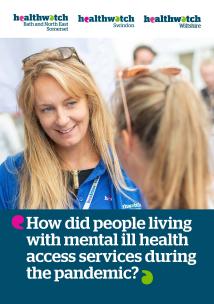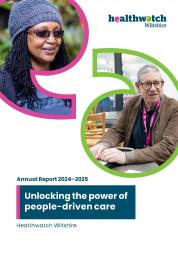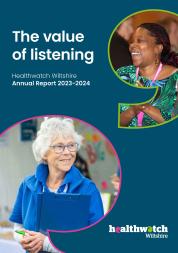How did people living with mental ill health access services during the pandemic?

Healthwatch BaNES, Healthwatch Swindon and Healthwatch Wiltshire worked with the Care Quality Commission (CQC), the independent regulator of health and social care in England, to hear the experiences of people accessing a named health and/or social care service while suffering with severe mental ill health.
What did we do?
The project was carried out during March 2022, and included an online survey, paper questionnaire, as well as direct engagement sessions in BaNES and Swindon. The majority of data collected during this period provided a snapshot of people’s feedback.
We also used information collected from a range of different projects during 2021 and the first quarter of 2022, from across all three areas.
What did we find out?
- The most common theme was people living with mental ill health are unable to access mental health services.
- People feel that mental health services should be preventative rather than reactive.
- Access is reliant on very high thresholds for receiving care; ongoing support should be provided that is more tailored to the individual.
- Waiting lists are very long and people felt they ‘get lost’ in the system.
- Some people reported that they found their mental health issues made it more difficult to access services, particularly when they were in crisis.
- The transition from children’s to adult services is problematic, with a perception that you have to start again.
- Carers feel they are not being listened to and as a result their own mental health is being adversely affected, which can impact negatively on the person they are caring for.
- Care coordinators are overstretched, with a high turnover, which further impacts on unpaid carers and service users.
- Feedback also highlighted gaps in services for people with autism or learning disabilities, the LGBTQ+ community, children and those suffering from trauma or eating disorders.
Conclusions and recommendations
The feedback we have collected clearly shows that mental health services are insufficient in meeting the needs of the populations of BaNES, Swindon and Wiltshire.
We recommend that significant training and additional support is provided, particularly across the less well-served areas, such as children’s services, eating disorders, and for people suffering from trauma.
Downloads
If you would like this report in a different format, email info@healthwatchwiltshire.co.uk or call 01225 434218.

